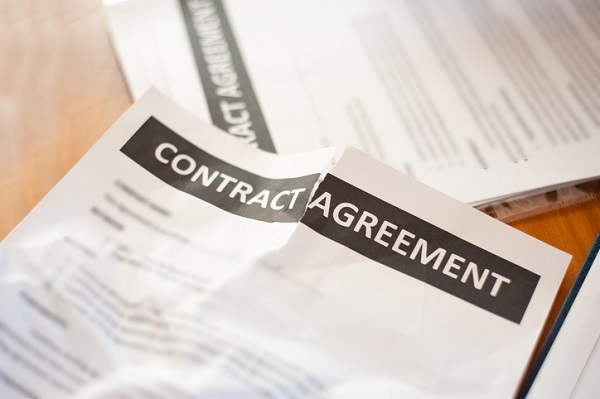Most Buyers and Sellers expect the home sale to go relatively smoothly. However, sometimes Buyers can hit a bump in the road if the Seller decides to back out. This can be due to a better offer, a life-changing circumstance, or simply cold feet. When Sellers suddenly back out of a deal, Buyers will expect their real estate agent to have answers and solutions. Here are a few common reasons why Sellers back out and what to do in case of a contract breach.
First things first: Read and understand the contract
The first thing your Buyers should do before signing any contracts is read and understand them. As a real estate agent, you know how dense and confusing legal language can be. You also know how competitive other Buyers can be when bidding on a quality home. These two factors can tempt Buyers into signing documents “just to get it done.” This can be devastating to them if things don’t go as planned.
There is a way to ensure that your Buyers know what they’re getting into. Set aside 30 minutes to an hour to walk through the nuances of the contract with them. Some agents will even go through the terms with their clients line by line. They’ll explain the legalese and put it in terms Buyers can understand. It may seem tedious, but it is extremely important that they know what the terms of the contract are.
Emotions will run high and one of the largest purchases of their lives on the horizon. Buyers will need a level-headed real estate agent to guide them through the technical parts of the home-buying process.
Determine whether the Seller defaulted
Most contracts include contingencies to allow the Seller to back out in certain cases. You and your Buyer will need to prepare for these contingencies so you know what to expect.
For example, the contract may include a contingency that says that if the Seller cannot find their own home before closing, they don’t have to sell at all. If the Seller can show that they made a good-faith effort to find a new home but couldn’t, you and your Buyer won’t have a legal basis to do anything about it. This could mean delays at best or starting the search all over at worst.
This is why it’s so important to ensure that your Buyers read and understand the terms. If your Buyers aren’t comfortable with these kinds of contingencies, knowing beforehand can be helpful. It can give you room to negotiate the terms or begin looking for other options on your Buyers’ terms.
What to do if the Seller breaches the contract
What happens if a Seller breaches the contract? If the Buyer can prove that the breach of contract affected them financially, filing a lawsuit is an option. Although no one wants to have to sue, some Buyers may find themselves in this situation. As a real estate professional, you’ll want to help your Buyers understand the basics of filing a lawsuit in cases of contract breaches.
One path is to consult a real estate attorney. An attorney can help you and your Buyers clearly understand their rights and options when they’re victims of breached contracts. Some Buyers may be hesitant to hire an attorney. As their real estate agent, you should help them understand that different states have different laws regarding what they can sue for and how much they can sue for. Without a one-size-fits-all solution to this issue, Buyers will need to be aware of their options should an issue arise.
Demanding ‘specific performance’ following a contract breach
When a Seller breaches the contract for an unspecified contingency (e.g., a better offer), Buyers may have legal recourse. In this case, your Buyer may be able to bring legal action for specific performance. This allows your Buyer to seek a court order that forces the Seller to sell the property according to the original terms of the contract.
However, determining whether specific performance applies is up to the court’s discretion. It’s typically deemed appropriate when the contract spells out essential elements of the sale in unequivocal terms. To seek specific performance, Buyers must also be ready and able to fulfill their part of the bargain (i.e., paying the agreed-upon purchase price).
Once again, urging your clients to read their contracts before signing them is paramount. If the contract allows the Seller unconditional rights to cancel, specific performance likely won’t apply. Additionally, courts may hesitate to enforce specific performance. This is especially true if the Seller plans to continue living in the house. On the other hand, if the Seller breached in response to a better offer, a court is more likely to force a homeowner to sell according to the terms of the original contract.
2-10 HBW offers comprehensive systems and appliances home warranties to help protect your clients from unexpected repair and replacement costs. Contact us to learn more.








